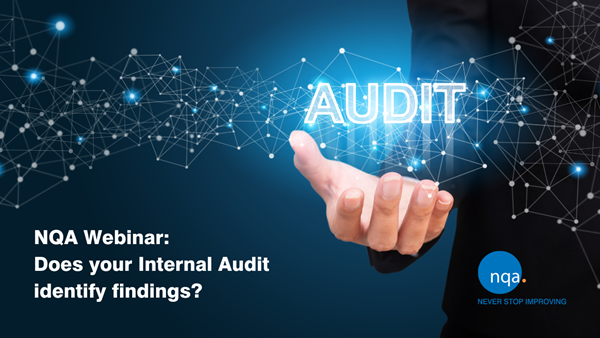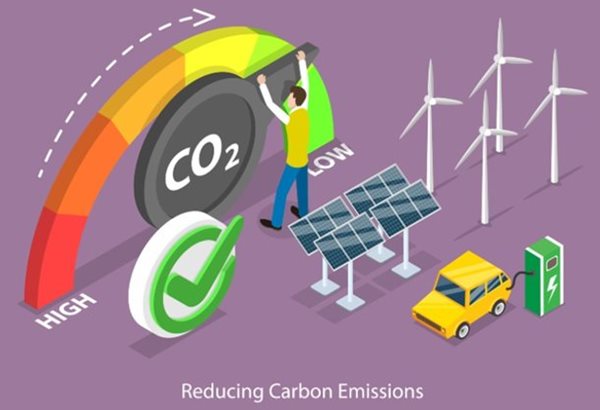ESOS: Energy Savings Opportunity Scheme
Find out about our suite of sustainability standards here.
What is ESOS?
The Energy Savings Opportunity Scheme (ESOS) is a mandatory energy assessment scheme for organizations in the UK that meet the qualification criteria. The Environment Agency is the UK scheme administrator.
The deadline for compliance with this UK legislation is 5th December 2023 for Phase 3 of the scheme.
Organizations that qualify for ESOS must carry out ESOS assessments every 4 years. These assessments are audits of the energy used by their buildings, industrial processes and transport to identify cost-effective energy saving measures.
Organizations do not need to pre-register with the Environment Agency but must notify the Environment Agency by the set deadline that they have complied with their ESOS obligations. As defined by the Energy Savings Trust.
ESOS Phase 3
The qualification deadline for Phase 3 of ESOS was 31st December 2022 which means businesses meeting the criteria must comply it's reporting requirements by the compliance deadline in December 2023. You can find more information regarding the criteria within our 'Who qualifies for ESOS?' section below.
All changes introduced in Phase 3 are subject to approval from necessary stakeholders, however, we can see that there are a number of amendments likely to come into effect.
Phase 3 updates:
-
Including energy intensity metric in ESOS reports as well as additional data surrounding compliance
-
Reporting annually on targets and progress against energy efficiency section of SECR reports
-
Reduction in the de minimis exemption from 10% to 5%
-
Implement a standard template for compliance in ESOS report
-
Providing further information on actions against recommendations in ESOS reports and sharing these with subsidiaries.
ESOS Phase 4
Plans continue to develop for future stages of ESOS, looking ahead to 2027 there are a number of actions being considered for Phase 4 of the scheme. With a worldwide focus on cutting carbon emissions and UK government setting ambitious targets on net zero, it is no surprise that ESOS will begin to evolve with that.
The fourth phase will look to include mandatory reporting on net zero, enforce actions on audit recommendations and update compliance and reporting options. Another key change will come from changing the scope of ESOS to include a higher threshold.
How can NQA support your ESOS compliance?
-
NQA can support you in meeting your ESOS compliance through certification to ISO 50001 (Energy Management), and providing a range of training courses varying from on demand E-Learning to Lead Auditor in ISO 50001.
-
Many forward-thinking organisations are positioning themselves ahead of future updates by incorporating carbon calculations and reporting into their business strategy. NQA can support you in preparing for ESOS Phase 4 through our Greenhouse Gas related standards ISO 14064-1 (Greenhouse Gas Inventory Verification) and PAS 2060 (Carbon Neutrality).
ESOS Phase 3 in December 2023: What this means for carbon reporting
Helps you with
- Ensure compliance to regulations
- Reduce energy use
- Cut consumption and emissions
- In turn reducing costs
- Implement energy saving measures
- Supports current and future carbon footprint calculations
Benefits of ISO 50001 Certification
Reduced operating costs
Significant financial savings can be achieved through increased energy efficiency (OFGEM forecast energy prices to rise by at least 20% by 2020).
Improve efficiencies
Encourages a more effective use of your resources, in turn reducing amount of claims, returns, reprocesses and rejections - potentially lower levels of regulatory reporting.
Reduced carbon footprint
Actively set goals to reduce your carbon footprint and people will respond positively to your organization.
Legal compliance
Understand how statutory and regulatory requirements impact your organisation and its customers.
Proven business credentials
Independent verification against a globally recognised industry standard speaks volumes.
Win more business
Procurement specifications often require certification as a condition to supply, so certification and verification opens doors.
ESOS compliance
Use Accredited ISO 50001 (energy management) certification as a route to ESOS compliance.
Achieve ESOS compliance with ISO 50001
We provide accredited ISO 50001 certification giving you:
-
Return on investment. ISO 50001 is has been proven to deliver return on investment through sustainable energy efficiency and improved performance.
-
Compliance by ESOS deadline. ISO 50001 can be implemented in less than 12 months and if you already have an Environmental Management System, you'll be roughly 67% ready.
-
Viable alternative to ESOS Energy Assessments. ISO 50001 is a cost effective alternative to ESOS Assessments and provides additional benefits beyond compliance reporting.
ISO 50001 certification must be issued by an accredited certification body, where the scope of accreditation covers the industry sector in which you operate.
NQA was the first certification body to achieve accreditation against the full scope of accreditation for ISO 50001 certification from UKAS (the United Kingdom Accreditation Service).
We can help you plan, implement and achieve accredited ISO 50001 certification, whatever your organizational structure and activity.
Avoid unwanted impacts from ESOS
As compliance deadlines pass, enforcement notices for non-compliance will be issued by the Environment Agency. Non-compliance could incur the following:
-
Fines of up to £50,000
-
Charges of an additional £500 per day for every day of non – compliance for up to 80 days
-
Public naming and shaming of your corporate brand for its failure to comply.
Who qualifies for ESOS?
Any UK undertaking that meets either one or both of the conditions below:
-
It employs 250 or more people
-
It has an annual turnover in excess of £44m+, and an annual balance sheet total in excess of £38m+ on 31st December 2022.
You also must take part in ESOS if your undertaking is part of a corporate group which includes another UK undertaking that meets either of these conditions.
See the Environment Agency guidelines for more information about ESOS compliance and enforcement here.
Steps to Certification
-
Step 1
Complete a Quote Request Form so we can understand you and your business. We will then use this to personally prepare a proposal for your certification and define what is known as your 'scope of assessment'.
-
Step 2
We will then contact you to book your assessment with an NQA assessor. It consists of two mandatory visits that form the Initial Certification Audit. Please note that you must be able to demonstrate that your management system has been operational for a minimum of three months and has been subject to a management review and a full cycle of internal audits.
-
Step 3
Following a successful stage two audit, a decision is made. If positive, your certification will be issued by NQA, with both a hard and soft copy of the certificate awarded. Certification is valid for three years and maintained through surveillance audits (years one and two) and a recertification audit in year three.
Related ESOS Content
What's next
Get in touch today to begin your journey to a greener, more sustainable business and a member of our team will be in touch to discuss your requirements:




